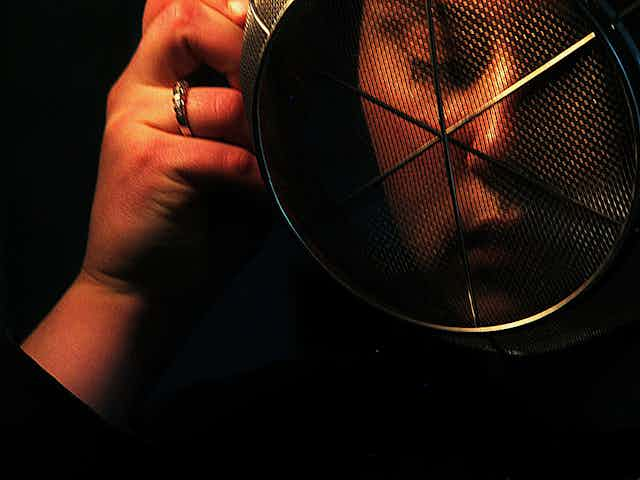By now you will have seen the Coaliton yesterday proposed an opt-out internet filter in their Policy to Enhance Online Safety for Children - and only a few hours later, retracted that policy.
The retraction announcement was buried in a media release under the banner of Malcolm Turnbull, shadow minister for communications and broadband, and within five hours the opt-out firewall policy was removed.
We poor voters are left wondering if this is merely a hiccup where the left hand doesn’t know what the right hand is doing, or whether the opt-out filter is actually the real agenda of the Coalition, which has been toned down for the election?
According to news website ZDNet the author of the policy, the Coalition’s cybersafety spokesman Paul Fletcher, confirmed the opt-out was policy.
After discussing the apparent policy on Triple J’s Hack program yesterday afternoon, Turnbull finally went on the offensive and quashed the policy on Twitter in the evening.

And in a media conference, opposition leader Tony Abbott blamed the mistake on “a badly worded sentence or two”.
From an electoral perspective it’s hard for a party to resist the platform of protecting children from undesirable content. Labor tried to implement mandatory filtering but in 2012 gave up due to the Greens and Liberals blocking the legislation in the Senate.
Some internet blocking was achieved with the then-communications minister Stephen Conroy using section 313 of the existing Telecommunications Act to force Internet Service Providers (ISPs) to block the Interpol “worst of” sites.
Around the firewall
A firewall blocks access to nominated resources, such as pornography sites, and allows anything else to be accessed. The term “firewall” is sometimes seen as too confrontational so most governments use a more innocuous term such as “filter”.
In the west we talk of the “Great Firewall of China” but in China it is described as the “Golden Shield”. They are essentially the same thing: a firewall to stop users getting access to websites and resources.
A “filter” is usually used to block access to particular sites but can also be used to block particular protocols, such as video. The sites to be blocked are derived from blacklists that can be compiled from automated web searches, teams of government employees, reports of bad sites from users, and the many blacklists compiled by third-party groups.

So what use is a filter? Well, if you hand your kids a tablet a filter may stop them accidentally accessing a bad site. But then we need to ask: just what constitutes a bad site?
Children can easily be traumatised by many legitimate sites such as those dedicated to anatomy, autopsies, how to butcher animals, news reports of war, and no end of unsavoury but not blockable sites. So even an opt-out filter fails to stop children finding traumatic material on the web.
So is there a solution? The only workable solution may be to use a whitelist of sites known to be OK for children.
This would be a matter of a browser option that enabled it to visit only approved sites based on a whitelist. A parent would first enable this feature and then hand over the tablet or laptop to their children.
If you want to try whitelist browsing simply search for the terms “whitelist browsing” and see how to make that work for your preferred browser.
Where’s the expertise?
Both political parties may benefit from employing or consulting with internet and networking experts to develop workable policies - rather than promoting ideas that are embarrassingly naive and unworkable from the outset.
The Labor plan from last year had some severe problems.
First, the process for identifying sites was not public nor scrutinised. There was no oversight of the blocking lists and they were kept secret. All filters have had severe problems blocking valid websites.
Just recently, Wikipedia was rendered uneditable by anyone in the UK after the British pornography watchdog blacklisted Wikipedia because of an offensive image in just one article.

In April 2013, the Australian Securities and Investment Commission (ASIC) caused a fraud site to be blocked and this accidentally blocked many legitimate sites including the Melbourne Free University.
Were it not for these problems, Labor may have garnered Green support in the Senate.
The view overseas
Filter policy or not, neither party seems to realise how easy it is to work around a firewall.
There are many instructions on the web on how to circumvent a filter. Try searching for the terms “get past a firewall” or “how to get past a filter” and you - and any child past the age of six - will become an expert in five minutes.
Many countries have internet filters. In the United Kingdom, all ISPs are required to block pornographic sites and so far this appears to be working.
The independent group the Open Net Initiative has found no evidence of other sites such as political sites being blocked though it noted that accidental blocking of legitimate sites is slow to reverse.
In the US, the First Amendment guaranteeing free-speech limits censorship, though child pornography is blocked as it does not enjoy First Amendment protection.
Blocking does happen a great deal though: in 2007 Verizon tried to block a pro-abortion group from using its services. A European travel agent advertising travel to Cuba was also blocked.
The US free-speech laws enable its citizens to fight the almost inevitable blocking of sites for political and commercial purposes. Even if we currently trust our government and big corporations, can we be sure this will always be the case?
To be safe we all need free-speech laws, that specifically exclude the really bad material such as child pornography, to give us a balanced protection of our rights.

